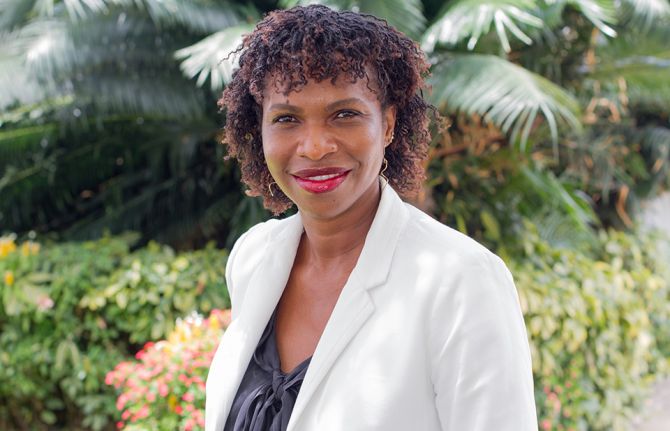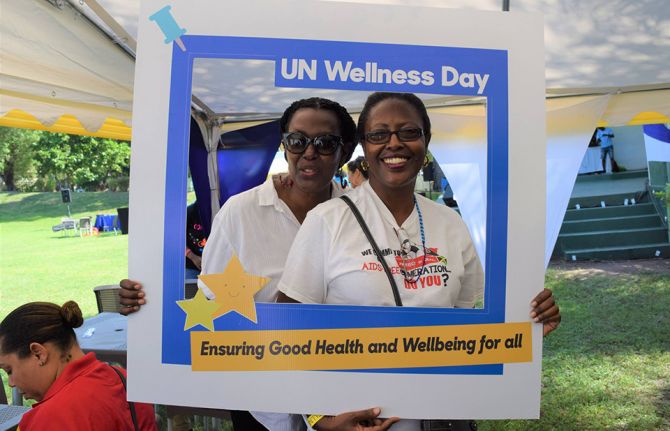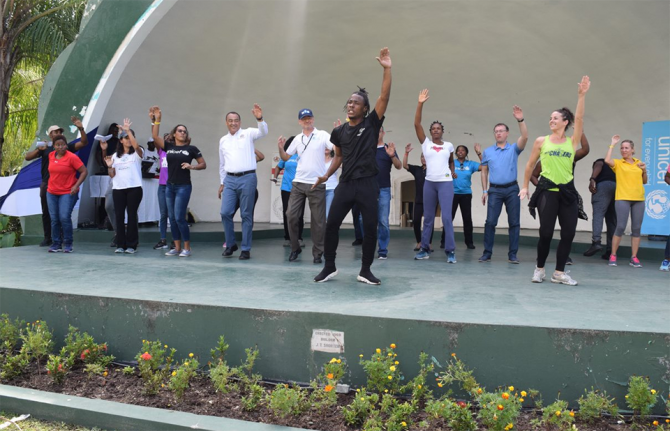



Feature Story
UN Cares: putting people first in Jamaica’s HIV response
02 December 2019
02 December 2019 02 December 2019Erva-Jean Stephens works as a Strategic Information Adviser in the UNAIDS Country Office in Jamaica. She describes her role as using evidence-informed data to shape programmes and policies that contribute to the country’s development.
Ms Stephen’s professional career is entwined with an activist’s desire to see better health outcomes for ordinary Jamaicans.
“I try to serve people first,” says Ms Stephens. “People reach out to me because I make myself accessible and I easily relate to their needs. I naturally build networks outside of the work environment that I think might be beneficial to the work we do.”
She supports the nongovernmental organization Eve for Life because she believes that young women and girls living with or affected by HIV are being left behind with regard to international funding and programmatic focus. Beyond providing technical support to help Eve for Life increase its funding, Ms Stevens has mobilized private sector organizations and UN Cares, the United Nations system-wide workplace programme on HIV, to raise funds and create care packages for young women and their children.
Under her leadership, UN Cares Jamaica has trained United Nations staff members in the country on issues such as unconscious bias and the human rights of lesbian, gay, bisexual, transgender and intersex people and of people who use drugs. In 2016, the United Nations team in Jamaica received an award from the United Nations Secretary-General for its work on raising awareness about HIV and noncommunicable diseases.
In 2018, UN Cares Jamaica launched UN Moves. This is an offshoot of a project led by the Ministry of Health that aims to harness the power of the private and public sectors to help create a healthier, happier population through nutrition, exercise and education. But for Ms Stevens, the most critical area of UN Cares’ work remains addressing HIV-related stigma and discrimination.
“There needs to be ongoing training on cultivating and maintaining a model work environment where stigma and discrimination have no place. Sometimes we may not realize to what extent people are looking at us in the United Nations and how important it is for us to walk the talk,” said Ms Stevens. She thinks about her own journey and how through the UN Cares programme she has learned to identify and uproot her own biases.
Ms Stevens has a degree in environmental health and food safety and a master’s degree in public health with a specialization in medical epidemiology. She began her career with the Ministry of Health, using monitoring and evaluation techniques to ensure outbreaks of malaria and food-borne illnesses were quickly brought under control.
She hopes to be part of the team that sees the end of the AIDS epidemic.
“When you look at the history of the Caribbean in terms of eradicating diseases, political commitment and community involvement have always intersected,” she explains. “To meet our commitments on controlling the transmission of HIV, we need to see more meaningful community engagement and leadership, supported by political will. I am here to provide the strategic information necessary to help realize that goal.”



